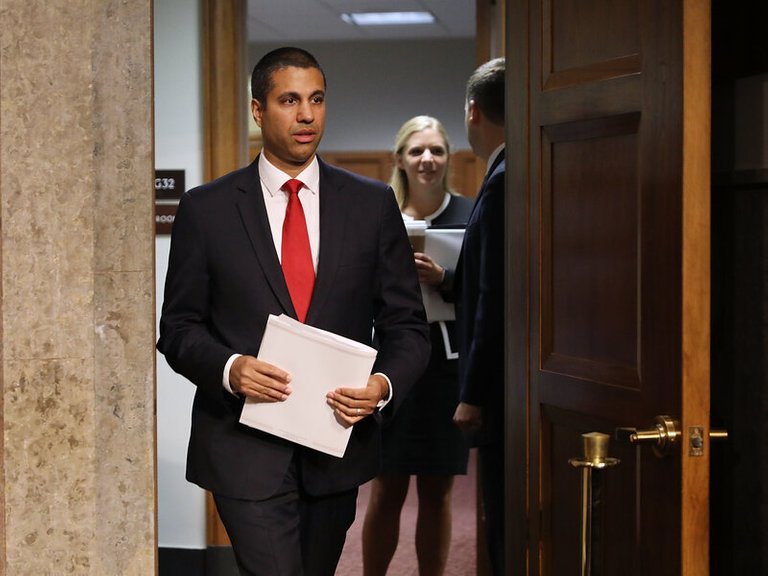
Federal regulators are on track to loosen regulations of cable and telecom companies.
The Federal Communications Commission will vote Dec. 14 on a plan to undo the landmark 2015 rules that had placed Internet service providers like Comcast and Verizon under the strictest-ever regulatory oversight.
The vote is expected to repeal so-called net neutrality rules, which prevent broadband companies from slowing down or blocking any sites or apps, or otherwise deciding what content gets to users faster.
FCC Chairman Ajit Pai on Tuesday said his repeal proposal would "stop micromanaging the Internet." Instead his plan would require Internet providers to disclose what exactly they're doing – for example, whether they allow some websites or apps to pay extra for faster streaming.
This would essentially shift the enforcement of net neutrality to the Federal Trade Commission, which polices violators rather than pre-empts the violations in the first place.
The five-member FCC has a Republican majority, including Pai, suggesting that his plan — called "The Restoring Internet Freedom Order" — will pass. As with various iterations of the rules over the past decade, the rules would likely face a lawsuit. The 2015 rules were the first version to be upheld in court in full.
Telecom and cable companies have long argued that the FCC's attempts to regulate privacy and Internet behavior put them on an unequal footing with other Internet companies that collect data on users, like Google and Netflix, which are only overseen by the FTC.
The New York Times has reported that Pai's plan would put more power in the hands of Internet providers "to dictate people's online experiences":
"Under a repeal, companies like AT&T and Comcast may be able to charge people higher fees to access certain websites and online services. The companies may also be able to prioritize their own services while disadvantaging websites run by rivals."
Pai — a free-market advocate who has staked his FCC chairmanship on deregulation — has argued that the FCC's 2015 rules have depressed companies' investments in building and expanding broadband networks and deterred them from coming up with new consumer-friendly business models.
As we've reported before, dozens of consumer advocacy groups, including Fight for the Future, Demand Progress and the ACLU have supported the strong net neutrality rules — aligned with companies like Netflix, Google, Etsy, Vimeo, Reddit and Amazon.
"We haven't actually lived in a world where fully the ISPs could block access," Denelle Dixon, chief legal and business officer at Mozilla, told NPR in the summer when Pai's plan began taking shape. "This is the world we need to imagine now."
Editor's Note: NPR's legal counsel has filed comments with the FCC on the net neutrality proposal, in opposition to deregulation.
Hi! I am a robot. I just upvoted you! I found similar content that readers might be interested in:
https://firenewsfeed.com/news/768306